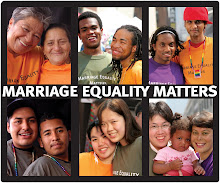- Curious Girl and I had a very nice time last night at a traditional seder: our hosts had written their own haggadah (and yes, Phantom, even if you have to host the family, it will be better to have your own haggadah than the Maxwell house one, which I have to admit to never having read it, but I believe all the criticisms of it I've ever seen). There were a good number of children, the hosts are excellent and vegetarian cooks, and the hagaddah had music in it so the musically-inclined guests could at least learn melodies and sing along. CG survived the disappointment of not finding the afikoman (at her preschool, the teacher had hid enough pieces of matzah for everyone to find one, so she found the notion of there being only a single piece of matzah to find rather hard to process). Still, the roll of Pesach stickers she got was lots of fun.
- CG gasped at several points during the story part of the seder, which was cool to see. That was bad! or The baby might die! were a couple of her comments. The hosts invited us all to contribute to telling the story, and people chimed in as they were so moved. It was a neat and participatory way to tell the story, and most of the narrative was carried by the 7 year old son of the hosts.
- I am really thinking hard about Yocheved this year. She's Moses' mother, and many of the haggadahs--especially those with an interest in children--mention that Miriam arranged for Yocheved to nurse Moses after Pharoah's daughter (the PRINCESS! Curious Girl keeps saying. Princesses are very interesting to four year olds) finds him in the bulrushes. This is usually presented as a reasonably perky and clever move on Miriam's part, which it is, I suppose. But I wonder about the pain it would cause a mother to see her child floating down the river, picked up by another woman. As my last entry indicates, we're doing a lot of talking about birth mothers and adoptive mothers and preganancy and baby-care-taking these days. And I am thinking about Yocheved, and what it would take to make a world in which more women--more parents--could care better for their children.
- Politica and I thought this was a pretty interesting read on dietary restrictions and the meaning of Passover.
- Politica's award-winning shingles are preventing her from going out to Seder 2 (large, energetic, with unconventional haggadah written by me and Politica) this evening. But CG and I are heading out, and I'll let you know about this one tomorrow.
13 April 2006
Seder I: Traditional
A few bullets, a la Phantom, about Passover so far:
Subscribe to:
Post Comments (Atom)




5 comments:
Oh, I'm sorry Politica can't go! But glad that you and Curious Girl enjoyed last night's seder. Very thought-provoking point on Yocheved.
I have that article on the dietary observances bookmarked from last year - it's wonderful! I love the part about 'if you pop Pesadich sweets into your mouth, but don't help feed the hungry / do anything for justice, you're not observing Passover.'
That's a wonderful article; thanks for the link. And I hope tonight's seder was as fun as it sounds.
And kol hakavoed to you for entering B4B, too!
Aw, how cool to see everything brand new through CG!
Your previous post had me thinking in the car on the way to seder on Wednesday about reading the story of Moses as an adoption story in which the adoptee eventually chooses to reclaim the identity of the culture into which he was born. I love your observation on Yocheved.
Sorry to hear that Politica had to miss the second seder, too. Next year without shingles!
Three years ago, my co-Sunday school (Christian) teacher and I read a picture book of the Moses story to 2-4 year olds that we failed to preview ahead of time. The book featured a spread of Miriam returning to her mother's house to bring news of Moses' rescue, and to bring her out as "wetnurse." And Yocheved is huddled in a dark corner of the house, with the most awful expression on her face, not having yet seen Miriam in the doorway. It unfortunately reduced both me and my friend to tears, which rather interrupted the flow of the class.
I have no idea whether it's an appropriate telling of the story for Jews (I just don't know enough to know those things) and the text isn't simplified in any way for children, but the author was Mary Auld and the title is Moses in the Bulrushes. I thought of it again after reading this beautiful post.
Post a Comment